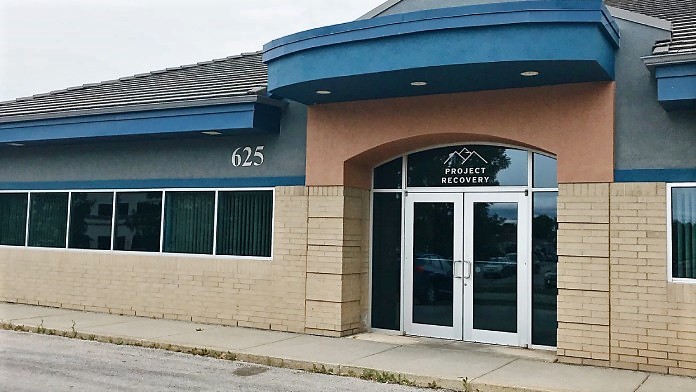
About Project Recovery
Known for its proximity to Mount Rushmore and The Cathedral of Our Lady of Perpetual Help, Rapid City in South Dakota is home to Project Recovery. This outpatient treatment center welcomes adults seeking treatment for substance use disorders. Residents throughout South Dakota can access comprehensive medication assisted treatment (MAT) in person or virtually.
Financial Assistance
A great thing I noticed about them was their payment support program. They accept all major insurance plans, and options are still available if you’re uninsured or have a low income. You may qualify for reduced fees or free visits depending on your unique situation. They’ll also help you apply for funding to cover medication costs if you can’t afford them.
Various Medications for Substance Use Disorder
For me, their wide range of medications for MAT really stood out. MAT helps you address the physical and emotional effects of quitting substances, like opioids and alcohol.
This blended approach combines behavioral therapies and FDA approved Suboxone, Vivitrol, Disulfiram, and Acamprosate. You can also access extended release, injectable naltrexone or buprenorphine. You’ll benefit from diverse medication options to find the best fit for you.
Same Day Care with Specialists
Another great feature that caught my eye was their walk in appointments. You can access treatment needs assessments Monday through Thursday on a first come, first served basis. If you’re making an appointment, they’re also open on Fridays. That way, you can determine the best level of care to start treatment and reach your recovery goals as soon as possible.
I also think it’s beneficial that they offer peer support. You can access guidance from a certified peer support specialist with lived experience in addiction and recovery. You’ll benefit from a helpful ally to celebrate wins and overcome challenges throughout your journey.
| Levels of Care | Detox Service Setting | Programs | Payment Options |
|---|---|---|---|
|
Inpatient and residential programs provide round-the-clock medical and emotional support as you live at the treatment facility. This level of care may be recommended if you have severe addictions or mental health conditions since it removes outside distractions and allows you to focus solely on therapy. |
In outpatient therapy, you’ll attend therapy sessions several times each week while living at home. This is ideal if you have a strong support system and a lower risk of relapse. Outpatient treatment offers flexibility to maintain work, school or family obligations. |
||
|
Inpatient detox occurs in a dedicated treatment facility. You’ll live there around the clock and receive intensive medical support and supervision to help manage your withdrawal symptoms. It is suitable for individuals with moderate to severe addictions as it ensures a stable detox environment. |
Outpatient detox gives you access to medically supervised withdrawal services while still allowing you to live at home. You’ll attend a clinic for treatment and monitoring. This flexible option is suitable for those with mild to moderate withdrawal symptoms who have strong support systems. |
||
|
Alcohol detox programs offer medical support to help individuals withdraw safely from alcohol. Your care team may use medications to ease your symptoms and provide medical monitoring to address complications. |
Drug detox programs support individuals who are withdrawing from addictive substances like cocaine and heroin. Medical support helps you manage symptoms in a controlled and safe environment so you can achieve initial sobriety. |
||
|
Private Insurance
|
Self Pay
|
Levels of Care
Inpatient and residential programs provide round-the-clock medical and emotional support as you live at the treatment facility. This level of care may be recommended if you have severe addictions or mental health conditions since it removes outside distractions and allows you to focus solely on therapy.
In outpatient therapy, you’ll attend therapy sessions several times each week while living at home. This is ideal if you have a strong support system and a lower risk of relapse. Outpatient treatment offers flexibility to maintain work, school or family obligations.
Detox Service Setting
Inpatient detox occurs in a dedicated treatment facility. You’ll live there around the clock and receive intensive medical support and supervision to help manage your withdrawal symptoms. It is suitable for individuals with moderate to severe addictions as it ensures a stable detox environment.
Outpatient detox gives you access to medically supervised withdrawal services while still allowing you to live at home. You’ll attend a clinic for treatment and monitoring. This flexible option is suitable for those with mild to moderate withdrawal symptoms who have strong support systems.
Programs
Alcohol detox programs offer medical support to help individuals withdraw safely from alcohol. Your care team may use medications to ease your symptoms and provide medical monitoring to address complications.
Drug detox programs support individuals who are withdrawing from addictive substances like cocaine and heroin. Medical support helps you manage symptoms in a controlled and safe environment so you can achieve initial sobriety.
Contact

Mariah Bourne earned a Master of Arts in Community Social Psychology from the University of Massachusetts Lowell. She has worked as a research associate on addiction and treatment studies, including opioid craving interventions. Today, she is a freelance writer. She’s passionate about sharing knowledge and resources to help others start their recovery journey.

Peter W.Y. Lee is a historian with a focus in American Cold War culture. He has examined how popular culture has served as a coping mechanism for the challenges and changes impacting American society throughout the twentieth century.




